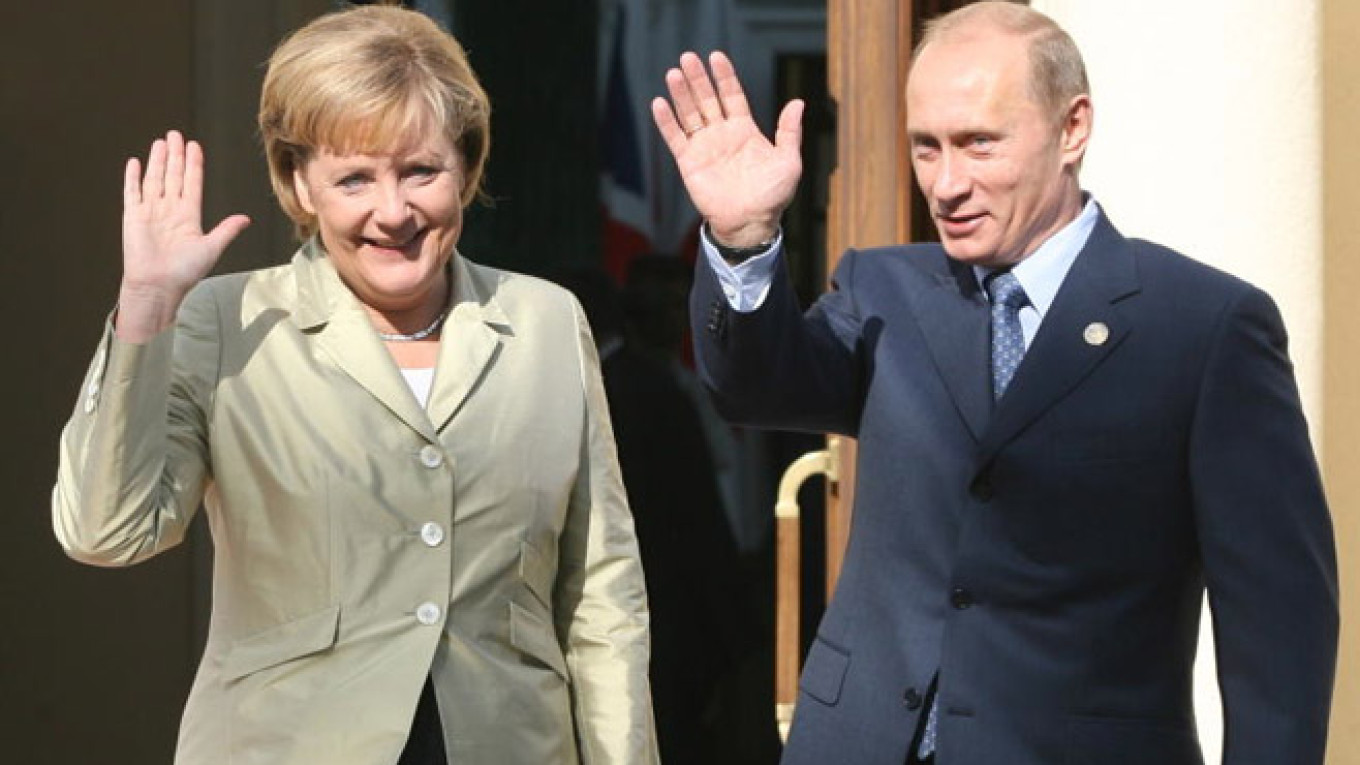Russia's relations with Europe have been badly strained over the Ukraine crisis. The two sides have fundamentally different perceptions of the situation, are suspicious of the other side's intentions, and have already gone through a series of sanctions against each other's economies.
Russia's view is that the crisis was caused by the West's conspiracy to remove Ukrainian President Viktor Yanukovych from power and install a pro-European government in Kiev.
Some within the Kremlin think that the EU was initially willing to work with Russia on finding an acceptable solution, but when pressed by the U.S., Europeans acquiesced to U.S. strategic priorities.
While the U.S. ignored Russia's interests in Ukraine such as the country's military neutrality, economic relations with the Eurasian Union and protection of ethnic Russians, the EU did little to assert its own preferences.
Europeans, however, insist that they helped to broker the deal between Yanukovych and the opposition and cannot be held responsible for his sudden resignation and disappearance from the country.
They accuse Russia of an overreaction that resulted in annexation of Crimea and military assistance for the rebels in eastern Ukraine.
Until recently, the position held by many EU officials on the Ukraine crisis has been more moderate than that of the U.S., yet unmistakably sympathetic to Kiev.
More recently, German Chancellor Angela Merkel's diplomacy has moved the severely damaged relations between Russia and Ukraine from the shadow of war to a more promising area of negotiations. As difficult as these negotiations may be, they have a better chance to stabilize the region than a continued military confrontation between Kiev and the Russian-backed rebels.
Behind the conflict between Europe and Russia are different perspectives on the currently emerging world order.
Whereas Europeans continue to accept — however grudgingly — the dominant role of the U.S. on the international stage, Russians have never been comfortable with it and claim a position of a greater independence and status in world affairs. The crisis in Ukraine has clearly illustrated this difference in viewpoints.
The EU's Eastern Partnership and the Russian-led Eurasian Union, proved to be completely incompatible, fueling growing suspicions of each other.
Russian and European values too have diverged. Russia has moved away from its experiment with a Western-style liberal democracy. Beginning with Putin's return to presidency, the Kremlin has also positioned Russia as a civilization with culturally distinct values relative to those of the West and other civilizations.
In multiple statements, Putin criticized what he saw as Europe's departure from traditional religious and family values. Last year, he declared "the desire for independence and sovereignty in spiritual, ideological and foreign policy spheres" as an "integral part of our national character" and proclaimed Russia a "conservative" power and the worldwide defender of traditional values.
These differences notwithstanding, Russia and leading European powers continue to share many interests. They have complementary and interdependent economies. Culturally Russia and Europe remain deeply connected.
Even though many Europeans are skeptical of Russia's political system and the emphasis on traditional family values, there are also sizable conservative constituencies in Europe that are not alienated by such emphasis.
In the meantime, many Russian officials are uncomfortable with the strained relations with Europe and until recently have referred to Russia as "an inalienable and organic part of Greater Europe." Whatever the Russian-European divide may be, it doesn't have to be widened further.
Coordinating Russian and European searches for solutions to the Ukraine crisis is both necessary and possible. The process that has been started by the OSCE and Chancellor Angela Merkel must continue.
Before it is too late, Russia and the EU ought to sponsor negotiations between Kiev and Donetsk aiming for preserving Ukrainian territorial integrity with sufficient autonomy for the east.
Moscow and leading European powers must also assist Kiev in drafting a post-war reconstruction program and pledge significant resources to that effect.
Without such resources, the already powerful Ukrainian far-right will destroy the country.
In the newly emerging highly unstable international environment, Russia and Europe need each other. Historically, Russian, German, and French statesmen favored a strong continental alliance as essential for preserving peace and stability on the continent.
Russian-European relations continue to be vitally important.
Multiple issues from energy security to stabilizing Eurasia and the Middle East would stand a better chance of being resolved if these ties grow stronger, not weaker.
Andrei P. Tsygankov is professor of international relations and political science at San Francisco State University and the author of "Russia and the West from Alexander to Putin" (2012)
A Message from The Moscow Times:
Dear readers,
We are facing unprecedented challenges. Russia's Prosecutor General's Office has designated The Moscow Times as an "undesirable" organization, criminalizing our work and putting our staff at risk of prosecution. This follows our earlier unjust labeling as a "foreign agent."
These actions are direct attempts to silence independent journalism in Russia. The authorities claim our work "discredits the decisions of the Russian leadership." We see things differently: we strive to provide accurate, unbiased reporting on Russia.
We, the journalists of The Moscow Times, refuse to be silenced. But to continue our work, we need your help.
Your support, no matter how small, makes a world of difference. If you can, please support us monthly starting from just $2. It's quick to set up, and every contribution makes a significant impact.
By supporting The Moscow Times, you're defending open, independent journalism in the face of repression. Thank you for standing with us.
Remind me later.


